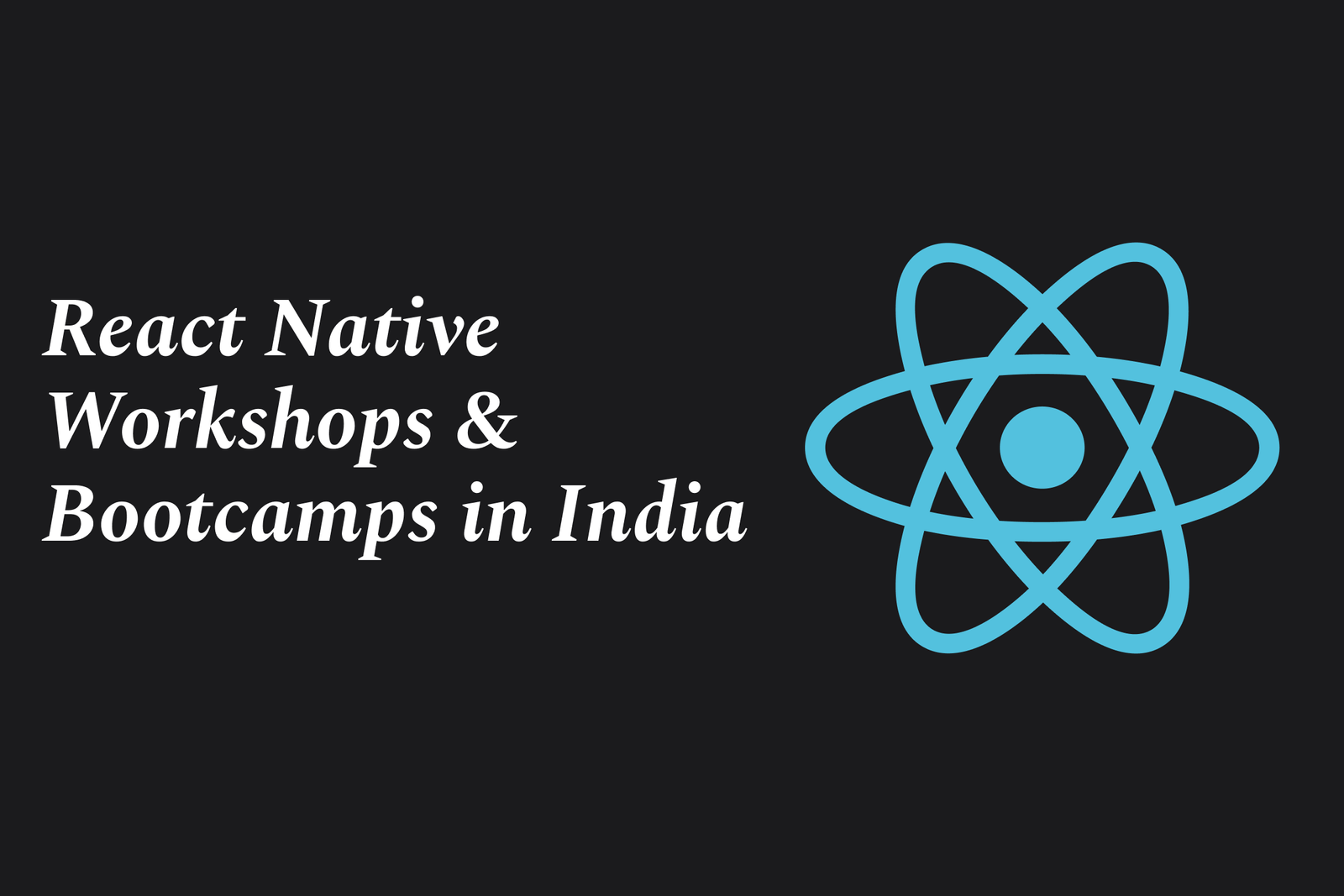React Native Workshops & Bootcamps in India
React Native workshops and bootcamps in India offer intensive, hands-on training to build cross-platform mobile apps. Ideal for beginners and developers, these programs focus on practical skills, real projects, and career support, helping learners excel in mobile app development quickly.
React Native Workshops & Bootcamps in India
1 ) Overview of React Native Learning Opportunities in India
India offers various workshops and bootcamps focused on React Native, catering to beginners and experienced developers aiming to upgrade their mobile app development skills using this popular framework.
2 ) Types of Programs Available
These learning programs include intensive bootcamps, weekend workshops, and online courses. They provide hands on training for building cross platform mobile apps with React Native, covering fundamental to advanced topics.
3 ) Key Features of Workshops and Bootcamps
Practical, project based learning
Live sessions led by industry experts
Focus on both iOS and Android app development
Exposure to ecosystem tools such as Redux, navigation libraries, and testing frameworks
Placement assistance and career support in some programs
4 ) Popular Training Providers in India
Several reputed institutes and online platforms conduct these workshops and bootcamps in major cities like Bangalore, Hyderabad, Pune, and Delhi. Providers often emphasize updated curriculum aligned with current industry requirements.
5 ) Who Should Join?
Beginners transitioning into mobile development without prior experience
Web developers familiar with React.js who want to expand into mobile apps
Professionals seeking upskilling for career advancement in app development
6 ) Benefits of Attending Workshops and Bootcamps
Accelerated learning through immersive formats
Networking opportunities with fellow learners and mentors
Real world exposure by developing deployable app projects
Better job prospects in India’s growing mobile development market
In summary, React Native workshops and bootcamps in India provide comprehensive, practical training to help aspiring developers build modern mobile apps efficiently while boosting their career opportunities.
https://justacademy.in/news-detail/flutter-vs-maui:-desktop-race-heats-up
https://justacademy.in/news-detail/android-device-certification-updates
https://justacademy.in/news-detail/android-instant-apps-developments
https://justacademy.in/news-detail/flutter-design-tokens-implementation
https://justacademy.in/news-detail/dartconf-2025-highlights
Related Posts
In 2025, top Angular libraries offer modern, feature-rich components and tools for building dynamic web apps. From powerful data grids to low-code platforms like UI Bakery, these libraries enhance development speed, UI design, and scalability, making them essential for Angular developers.
Migrating from AngularJS to Angular 17 involves gradually upgrading your app by running both frameworks together using tools like ngUpgrade, rewriting components in TypeScript, and adopting Angular’s modern architecture to enhance performance, maintainability, and long-term support.
Angular state management tools help organize and handle app data efficiently, improving scalability and maintainability. Popular options include NgRx for robust, RxJS-based patterns, and newer Signal Store solutions that offer simpler, reactive approaches integrated tightly with Angular’s latest features.
RxJS in Angular empowers developers to manage asynchronous data streams with powerful operators like `forkJoin`, `combineLatest`, and `zip`. Mastering these key operators in 2025 is essential for building efficient, reactive applications that handle complex event sequences seamlessly.
Angular performance optimization in 2025 focuses on improving app speed and responsiveness by using techniques like OnPush change detection, lazy loading, efficient data caching, and AOT compilation. These practices reduce load times, enhance user experience, and ensure scalable, fast Angular applications.
In 2025, Angular remains preferred for large-scale, enterprise apps with its robust, all-in-one framework, while Vue attracts developers seeking simplicity and fast development for smaller projects. Both frameworks excel, with choice driven by project needs and team expertise.
Angular Signals are a new reactive primitive in Angular 16 that enable fine-grained, efficient change detection by automatically tracking dependencies and updating only affected parts of the UI. They simplify state management and boost app performance, revolutionizing Angular's reactivity model.
Angular interview questions to prepare in 2025 focus on core concepts like components, directives, data binding, routing, and dependency injection, along with TypeScript mastery and latest Angular features to ensure strong practical knowledge for building scalable, efficient web applications.
AngularJS reached its official end of support in January 2022, meaning no further updates or security patches. To ensure app security and performance, developers should consider migrating to modern Angular versions or seek third-party long-term support options if immediate migration isn’t possible.
The Angular Roadmap 2025 highlights upcoming features focused on improving developer experience and performance, including zoneless Angular, Signals integration, enhanced Forms, async data handling, improved HMR, and expanded Angular Material/CDK enhancements, driving modern, efficient web app development.










